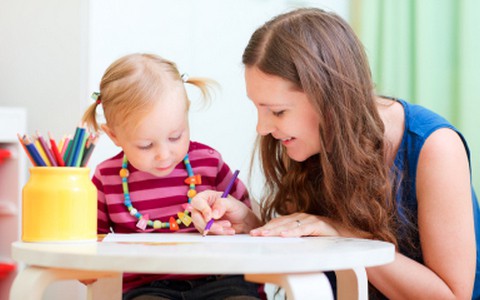Many parents wait eagerly for those first words, for more fluid communication with their child, and for those early adorable phrases and mispronunciations. Along with that eagerness can come some concern. Is my child learning to speak and communicate at a typical pace? There are general guidelines that will help you to identify possible concerns, but remember to review your concerns with your pediatrician before becoming worried. While some issues are signs of a speech delay, others are simply unique to your child and will pass.
- When you speak to your infant, when you play music, or when a sudden sound occurs or an electronic toy turns on, how does your child respond? If he has no response, talk to your pediatrician about his hearing or other possible developmental issues.
- By the time your baby reaches six months of age, he may be beginning to babble by putting consonant and vowel sounds together, such as “mama” and “dada or “nana”. Some children do this a bit early, and others work toward it a little later, but ask your pediatrician if you’re concerned about this particular milestone.
- By nine months old, your infant should be responding to you by turning his head when you say his name or imitating familiar sounds you make. You may want to speak to your pediatrician is he doesn’t begin to do these things around this time.
- By the time your child turns one year of age, you may be hearing some language! He may start to say important words like “mama” and “dada” or even “uh-oh” or the names of pets or grandparents.
- Keep an eye out for non-verbal communication as well. By his first birthday, is your child waving hello or goodbye, or shaking his head “no”?
- By 18 months, your toddler will start acquiring more and more receptive language. He’ll be able to follow simple instructions, like “pick up the cup” or “come over to mama”.
- Between 18 and 24 months, many parents see a bit of a language explosion. Review your child’s progress at his two year check-up with his prediatrician. He may be getting close to a 50 word vocabulary, or putting together two-word phrases. His vocabulary may be even larger if he is picking up language from his friends at daycare.
- Also at two years of age, your child may be able to communicate simple needs, like requests for more milk or a favorite toy. You might consider asking your little one’s childcare providers what he is able to ask for during the day at daycare.
These timelines are general, and not every child meets them at the same time. Remember to keep your ears open for your child’s progress, but don’t become concerned unless your child’s pediatrician tells you that there is cause for concern.

